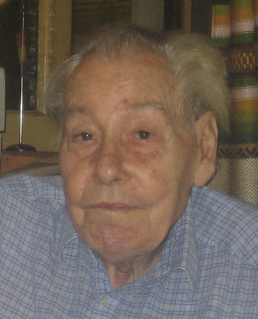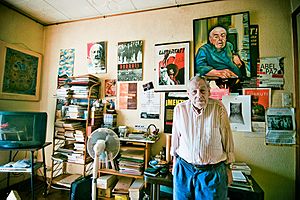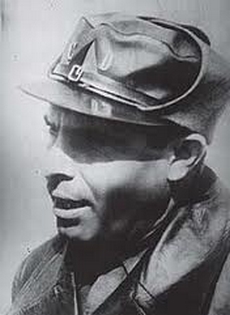Abel Paz facts for kids
Quick facts for kids
Abel Paz
|
|
|---|---|

Abel Paz (2007)
|
|
| Born |
Diego Camacho Escámez
August 12, 1921 Almería, Andalusia, Spain
|
| Died | April 13, 2009 (aged 87) Barcelona, Spain
|
| Other names | Abel Paz |
| Occupation | Anarchist, writer, historian |
| Known for | Spanish anarchist, anti-fascist, biographer of Durruti |
Abel Paz (1921–2009) was a Spanish historian and a fighter for what he believed in. He was known as an anarchist, which means he believed in a society without a government, where people could organize themselves freely. He fought in the Spanish Civil War and wrote many books about anarchist history. One of his most famous books is about Buenaventura Durruti, an important anarchist leader during the war. Abel Paz held onto his beliefs throughout his life, even spending ten years in jail in Francoist Spain and living many years away from his home country in France.
Contents
Who Was Abel Paz?
Early Life and Learning
Abel Paz was born Diego Camacho Escámez on August 12, 1921. His birthplace was Almería, a city in southeastern Andalusia, Spain. When he was six years old, he moved to Barcelona to live with his uncle. His uncle was a member of the Confederación Nacional del Trabajo (CNT). This was a large Spanish workers' union that believed in anarchism.
Before he was a teenager, Paz joined a special school in Barcelona. It was called Escuela Natura and was in a working-class area. This school followed the ideas of Francisco Ferrer, who believed in freedom and self-education. Paz briefly returned to Almería, where his mother also belonged to the CNT. In 1935, he joined the Libertarian Youth group.
Fighting for Freedom
By February 1936, Paz was back in Barcelona. This was just before the start of the Spanish Revolution and the Spanish Civil War. He took part in the resistance when General Francisco Franco tried to take control of the country in 1936.
Paz joined the CNT-FAI, a group that fought for the working class and anarchist ideas. In 1937, he was arrested after a disagreement with another political group. After that, he worked on a farm that was run by a group of people together. He also wrote for Tierra y Libertad, a newspaper for anarchists. He continued to fight on the Catalan front during the war.
Life After the War
The war ended in early 1939. General Franco's forces took over Catalonia, a region in Spain. Paz and many other anarchists had to leave Spain and find safety in France.
In 1942, Paz secretly returned to Catalonia. He tried to restart the CNT union. Because of this, he was put in jail. He was moved between different prisons for five years. Soon after he was released, he was jailed again for another five years. This was because he was still involved with the Libertarian Youth group.
Years in Exile
After being released from jail in 1952, Paz continued his work against Franco's government. He became a representative for the underground anarchist organization at an international meeting in 1953.
Paz stayed in France, living in exile. He traveled and worked with groups that were against Franco and supported the CNT and Libertarian Youth. His partner, Antònia Fontanillas, who also came from an anarchist family, traveled with him until 1958. Over the next ten years, Paz wrote several history books. One of his most important books was a biography of Buenaventura Durruti. This book became known as the most complete story of Durruti's life. In his book, Paz also explained why Durruti's militia (a group of armed citizens) didn't manage to capture a city called Zaragoza during the war.
Coming Home
In 1975, General Francisco Franco died, and Spain began to change. In 1979, Paz returned to Spain and rejoined the anarchist movement there. He wrote a four-part memoir, which is a type of autobiography. He also talked to young people about his experiences and what he had learned.
In the mid-1990s, Paz traveled to Italy. He spoke at public meetings because people were interested in a 1995 movie about the Spanish Civil War called Land and Freedom. He continued to share his stories about the war with the media until he became too ill and passed away.
His Life and Legacy
Abel Paz's life partner was Antònia Fontanillas.
He died in Barcelona on April 13, 2009, at the age of 87. He left behind a legacy of historical writing and a strong commitment to his beliefs.
Books by Abel Paz
- La Barcelona Rebelde: Guía De Una Ciudad Silenciada (Rebellious Barcelona: Guide to a Silenced City), 2003.
- Durruti en la Revolución Española (Durruti in the Spanish Revolution), 1996.
- Durruti in the Spanish Revolution, 2006. This is the English translation of his famous book.
- Durruti: the people armed, 1976.
- The Spanish civil war, 1997.
- The Story of the Iron Column: Militant Anarchism in the Spanish Civil War, 2011.
See also
 In Spanish: Abel Paz para niños
In Spanish: Abel Paz para niños
Images for kids




